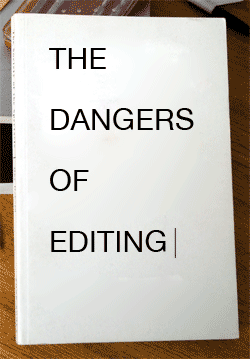top of page


At Pugwash (photo of me by artist Piotr Styk)
Sculptures of Arhat, 2017, by Ye Qin Zhu. 15 page preview
Please email me to purchase a copy. 52 pages, $10.
A hand-bound zine. 2010

1

2

11

1
1/11

Heart and Lung and Heart and Lung and....

Watercolor on rice paper. 2016 - 2017. A series of paintings for my book Sculptures of Arhat.

Becoming Dense and Distinct
Ye Qin Zhu | 2017 | Materials: spruce, rocks, magnolia flowers, leaves, petals, seeds, and twigs, cloth, hot glue, rubber band, watercolor, garlic stem, weed leaves and flowers.



Becoming Dense and Distinct
Ye Qin Zhu | 2017 | Materials: spruce, rocks, magnolia flowers, leaves, petals, seeds, and twigs, cloth, hot glue, rubber band, watercolor, garlic stem, weed leaves and flowers.
1/3

No Gain, No Loss
Ye Qin Zhu | 2017 | Materials: sunflower, potting soil, beeswax, SONY headphones, pigment.



No Gain, No Loss
Ye Qin Zhu | 2017 | Materials: sunflower, potting soil, beeswax, SONY headphones, pigment.
1/3
"All sentient species are biologically programmed to attack alien enemies. Some species are programmed to attack their own members as alien enemies. Rats, for example, will attack, kill, or even cannibalize one another under conditions of overcrowding and deprivation. But human beings are more unique still. Only human beings are capable of self-destruction, of suicide, of acts that have their own self-obliteration as a conscious purpose. Human beings must view themselves as alien enemies to be able to do this. They must believe that if they allow this alien enemy to exist, it will destroy them. And so to avoid destroying themselves they destroy themselves. We can see why this might be so. We do not know ourselves very well. Often we feel assaulted by unacceptable thoughts and impulses, and move to suppress them; or shamed by unacceptable physical features, and work to remove them; or threatened by others’ unacceptable behavior or appearance, and to attack or reject them. We view these things as alien enemies, not as the familiar ingrained parts of ourselves they are. And so we are constantly moved to destroy and reconstitute ourselves in conformity with our truncated and distorted self-image. In all these cases, and others like them, we fail to recognize that we are destroying ourselves. And so our centrally motivating urge to self-destruction itself goes unrecognized. Perhaps we wouldn’t recognize this particular facet of ourselves if it stared us in the face."
Portrait, by Adrian Piper
"The path is writing and writing is a body and a body is bodies (the grove of trees). Just as meaning appears beyond writing, as though it were the destination, the end of the road (an end that ceases to be an end the moment we arrive there, a meaning that vanishes the moment we state it), so the body first appears to our eye as a perfect totality, and yet it too proves to be intangible: the body is always somewhere beyond the body. On touching it, it divides itself (like a text) into portions that are momentary sensations: a sensation that is a perception of a thigh, an earlobe, a nipple, a fingernail, a warm patch of groin, the hollow in the throat like the beginning of a twilight. The body that we embrace is a river of metamorphoses, a continual division, a flowing of visions, a quartered body whose pieces scatter, disperse, come back together again with the intensity of a flash of lightening hurtling towards a white black white fixity. A fixity that is destroyed in another black white flash; the body is the place marking the disappearance of the body. Reconciliation with the body culminates in the annihilation of the body (the meaning). Every body is a language that vanishes at the moment of absolute plenitude; on reaching the state of incandescence, every language reveals itself to be an unintelligible body. The word is a disincarnation of the world in search of its meaning; and an incarnation: a destruction of meaning, a return to the body. Poetry is corporeal: the reverse of names."
Octavio Paz, The Monkey Grammarian
"Abolition involves critique, refusal and rejection of that which you want to abolish, but it also involves being or ‘becoming unavailable for servitude’, to use Toni Cade Bambara's words. Needless to say, being or becoming unavailable for servitude takes a certain amount of time and trouble and one reason why is that, among other things, being or becoming unavailable for servitude involves cultivating an indifference, an ability to be in-difference to the system’s own benefits and its own technologies of improvement. This kind of in-difference is an important form of political and individual consciousness and it is also a conceptual measure of abolition itself. It’s key to anticipating, inhabiting, making the world you want to live in now, urgently, as if you couldn't live otherwise, peacefully, as if you have all the time in the world."
Ghostly Matters - Haunting and the Sociological Imagination
by Avery Gordon.
Paul Chan: http://bombmagazine.org/article/2734/paul-chan
bottom of page